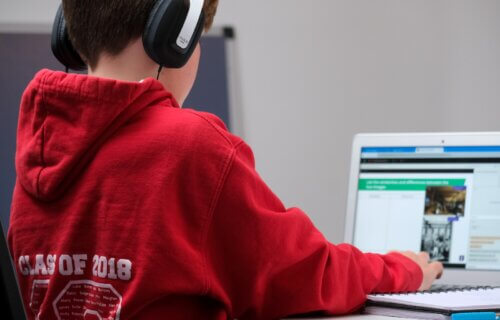SERIK, Turkey — Incorporating music into math lessons can lead to better grades for children, a new study reveals. Researchers in Turkey say that listening to music makes learning math more enjoyable, maintains student engagement, and helps alleviate fears or anxieties associated with the subject. This could potentially increase motivation, leading to a greater appreciation for mathematics among students.
The study outlines a variety of techniques for integrating music into math lessons. These range from clapping to pieces with different rhythms when teaching numbers and fractions, to using mathematics to design musical instruments.
In the process of their research, the scholars investigated academic databases for studies on this topic published from 1975 to 2022. They subsequently synthesized the results of 55 studies from around the globe, which included almost 78,000 young individuals ranging from young children in kindergarten to university students.
They then analyzed three distinct music intervention types. The first was standardized music interventions, such as typical music lessons where children sing, listen to, and compose music. The second category involved instrumental musical interventions, where students learned how to play instruments, either individually or in a band. The third was music-math integrated interventions, in which teachers wove music into the fabric of math lessons.
Students underwent math testing both before and after the interventions. Study authors compared their score changes to those of students who did not participate in any intervention. The study found that the use of music, whether as stand-alone lessons or integrated into math classes, led to a more significant improvement in math performance over time.

(© Monkey Business – stock.adobe.com)
Among all the interventions, the integrated lessons had the greatest impact, with approximately 73 percent of the students who participated in integrated lessons performing significantly better than their counterparts who received no musical intervention. Additionally, 69 percent of students who learned how to play instruments and 58 percent who took regular music lessons showed more improvement than those without any musical intervention.
The study further revealed that music particularly aids learning in arithmetic compared to other types of math and has a more substantial impact on younger students and those learning more fundamental mathematical concepts.
The authors highlight the similarities between math and music, such as the use of symbols and symmetry, the necessity for abstract thought, and quantitative reasoning. Arithmetic, they suggest, lends itself especially well to being taught through music, given that core concepts like fractions and ratios are also fundamental to music. For instance, musical notes of varying lengths can be depicted as fractions and added together to form several bars of music.
Integrated lessons can be particularly effective as they allow students to establish connections between math and music, providing additional opportunities to explore, interpret, and understand mathematical concepts. If these lessons are more enjoyable than traditional math classes, students’ anxieties about the subject could be eased.
Despite its insightful findings, researchers note their study had certain limitations. The relatively small number of studies available for inclusion meant it wasn’t feasible to investigate the effect of factors such as gender, socio-economic status, and duration of musical instruction on the results.
Dr. Ayça Akin, from the Department of Software Engineering at Antalya Belek University, asserts that while overall musical instruction has a small to moderate effect on achievement in math, integrated lessons have a significantly larger impact.
“Encouraging mathematics and music teachers to plan lessons together could help ease students’ anxiety about mathematics, while also boosting achievement,” Dr. Akin adds in a media release.
The study is published in the journal Educational Studies.
South West News Service writer Alice Clifford contributed to this report.

